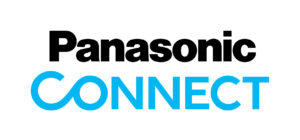
Electronic Shelf Labels are an integral element in Q1 Energie’s smart store trial shaping the future of service station retail.
Bracknell, UK. 14th May 2024 – Panasonic Connect Electronic Shelf Labels (ESL) have been chosen as an essential element in the success of the first trial smart store built by German service station company Q1 Energie AG and German AI company Autonomo GmbH. Q1 Energie, with 230 locations across Germany, is piloting its first “Shop & Go” smart store in the city of Osnabrück to help shape the future of retail in European service stations.
The smart store is open 24/7, giving customers easy access and enables them to leave the shop without queuing at a checkout. Key partners were shopfitters Kesseböhmer, specialists in smart store hardware and software, Autonomo, and Panasonic for installation and integration of the ESL.
Housed in a 9x3m container at the heart of the Osnabrück Science Park, the smart store is in the ideal location for testing. It offers a wide range of 300 products to local employees, university students located in nearby buildings and young, tech-savvy local residents.
Panasonic ESLs are essential in the store without staff. They are able to provide customers with more information about products, advertise special promotions and automate the updating of stock control and pricing, which can be delivered dynamically.
James Sutherland, CEO at Autonomo, a Harvard award-winning AI company that exists to simplify shopping for retailers and customers, explains: “Petrol stations open long hours and struggle to recruit and retain staff, we solve this leading to increase retailer profits and increase shopper satisfaction. Our solution includes a dynamic pricing model adjusting price based on time of day, stock holding or weather thereby maximising the sales or basket. A reliable ESL is needed to cope so the customer actually benefits from it.”
Jens-Michael Pohl, Head of Field Engineering at Panasonic Connect Europe, explains: “The integration is different because we are integrating with a cloud service – and not with a customer server or an on-premise system. Communication only occurs from cloud to cloud, which makes it easier to scale in the future – it also makes the hardware cheaper because the resources in the cloud are divided between several locations.”
Jörg Bleydorn, Head of Convenience Retail at Q1, believes that the trial will allow the company to actively shape the future of the service station industry, address the issue of labour shortages and provide customers with a more convenient and enhanced customer experience.
Results from the “Shop and Go” smart store trial will be presented at the UNITI Expo in Stuttgart, from May 14-16th. Panasonic Connect Europe will also be attending the event and available to discuss the project in Hall 1, Booth 1C04.


